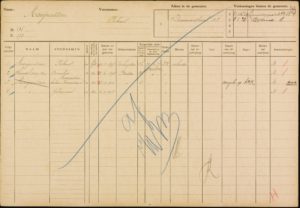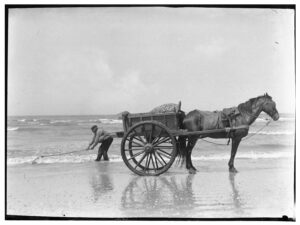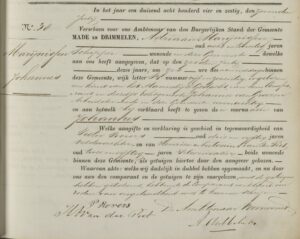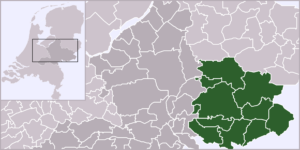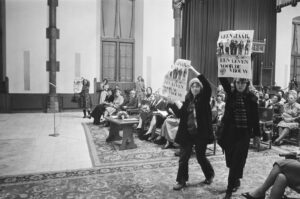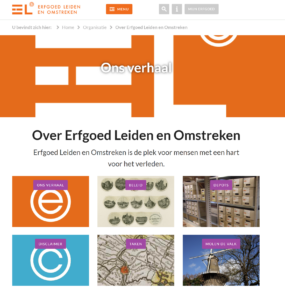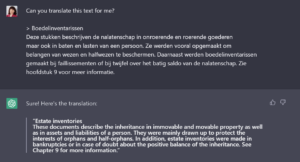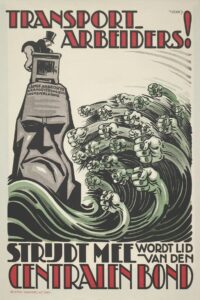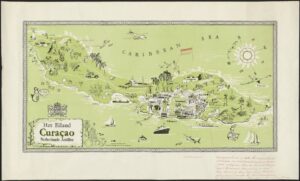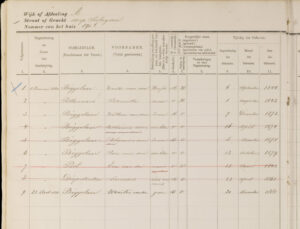The website Uit de oude koektrommel has a useful page with abbreviations you may come across when using population registers. The page has four categories: Algemeen [general] Kerkelijk gezindte [Religious affiliation] Plaatsen en provincies [Place names and provinces] Landen [Countries]. The page is in Dutch, but once you know the full term you can often use a translator like Google Translate to translate the terms to a different language. … [Read more...]
Dutch term – Schelpenvisser
A schelpenfisher is a shellfish fisherman. … [Read more...]
Dutch Ancestors Research Plan – 19th century
In my Level-Up Challenge, I defined six levels of ancestral profiles. In this post, I will give you a basic research plan for an ancestor living in the 19th century for levels 1-4. Level 1: Names only I usually find the name of the person in records of somebody else I am researching. No specific research plan needed. Level 2: Vital statistics The civil registration was introduced in 1811 in most parts of the Netherlands (around 1795 for some parts of Limburg and Zeeland). I try to find all … [Read more...]
Quick tip: Difference between Twente and Achterhoek
There are two regions in the east of the Netherlands that often get confused: Twente and the Achterhoek. Twente is the eastern part of the province of Overijssel. Major towns are Enschede, Hengelo, Almelo, and Oldenzaal. The Achterhoek is the eastern part of the province of Gelderland. Major towns are Winterswijk, Groenlo, Lochem, and Zutphen. … [Read more...]
Quick tip – Not always progressive
While the Netherlands is known for its progressive and tolerant policies, this was not always the case. The country has a complicated history, including periods of religious and political turmoil and persecution of minority groups; some still occuring today. A few examples: Before 1795, only members of the Dutch Reformed church could hold public office. In the 1830s, the government oppressed people who had seceded from the Dutch Reformed Church. Seceder ministers would receive … [Read more...]
Dutch term – Erfgoed
The Dutch term erfgoed means "heritage." You may come across the term in the names of repositories that keep archival records, such as Erfgoed Leiden en Omstreken [Heritage Leiden and surrounding area] or Erfgoedcentrum Achterhoek en Liemers [Heritage Center Achterhoek and Liemers]. These organizations are not just archives, but also centers for other types of heritage in the town or region, which could include archaeology, monuments, and regional dialects and … [Read more...]
Five good and bad ways to use ChatGPT for genealogy
You may have heard about ChatGPT, the artificial intelligence language model that can understand and generate language. It uses machine learning to analyze and respond to questions by the users. It can give you information about a wide range of topics. In this post, I am going to explore five different ways you can use it. Some are great, some are terrible. I hope showing you the good and the bad will help you realize what you can and cannot use the tool for. I will provide five examples, … [Read more...]
Dutch term – Affiche
An affiche is a poster. Affiches can tell you what was going on in a place where your ancestors lived, and they make great illustrations for your family history. … [Read more...]
Dutch Genealogy News for March 2023
Here is an overview of the new sources, projects, and other news announced last month. Sources The oldest Yearbooks of the Dutch Settlers Society of Albany (1924-1951) are now available on their website. These books contain many abstracts of early records of the town of Beverwijk/Albany in the current state of New York, including some from the period when it was part of the colony of New Netherland. Notarial records of Schouwen-Duiveland 1642-1810 are now available via Zeeuwen Gezocht, … [Read more...]
Dutch term – Verwant
Verwant can be a noun or an adjective, and means relative or related, respectively. You may come across the term in population registers, where the relation to the head of household might read "niet verwant" [not related], sometimes abbreviated to "niet verw." or "n.v.w." This could indicate the person was a lodger or employee of the head of household. … [Read more...]
